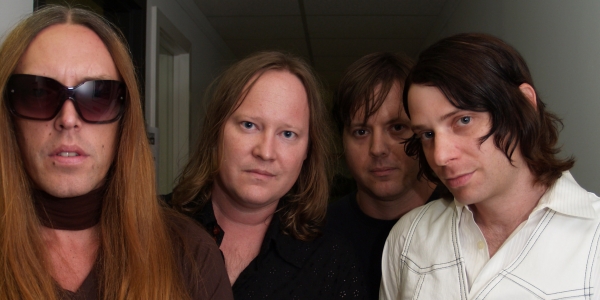“There were times in the mid ‘90s when most of the bands in the Top 10 on the Billboard charts were rock bands,” says the affable lead singer/guitarist from his Chicago home. “And most of those bands would have outsold everyone but maybe Lady Gaga. Soundgarden, Pearl Jam, the Smashing Pumpkins, Nirvana; rock music had a cultural voice way beyond anything we see today. It was a really great time to be in a band. Although it was over before anybody knew what was really happening.”
“And you got the feeling that what Nevermind replaced was Michael Jackson,” he continues. “And that was a product of a pop-leaning, lowest common denominator type of music. That was something that people had assumed punk and rock would take over, and stay there. And in the ‘90s, rock was important, but I don’t think you could argue that it’s still that way today. Certainly with the expansion of means of recording equipment, music has become more fragmented and it’s headed in every direction. But there’s less a sense of community now. And we’re part of that, but we also have our own rules. At this moment, we’re our own world. Even back then, we were outsiders in the grunge scene. Neil Diamond certainly wasn’t cool when we covered him.”
Though Urge Overkill often go unmentioned in a discussion of the early ’90s rock explosion, the four albums they released between 1989 and 1993 were seminal pieces of groove-laden, heavy rock’n’roll. Yet the after the band fell victim to feuding, coupled with shifting trends in the music industry, they went on hiatus.
Roeser reflects with a sense of poignancy on the changes that occurred in the music industry around the time of Urge Overkill’s demise.
“But that whole industry is gone now,” he says. “You don’t need a couple hundred thousand dollars to make a good record. The returns from CDs just aren’t there. For bands that are beginning, it’s great. They have access to better methods of recording and distribution, whereas in the past, the big labels had a monopoly on distribution. That’s no longer true, with the internet. People who haven’t been around as long might not believe it. It’s a completely new dynamic. It’s a more fair playing field if you’re playing the kind of music we play. There are fewer anointed bands. You sink or swim on your own power, instead of a few people in New York or Los Angeles making those decisions.”
Urge Overkill decided to take matters into their own hands after reforming in 2004. Though they toured sporadically, 2011 saw the band release their first full-length since Exit The Dragon. Rock And Roll Submarine finds the band returning to their lusty rock roots, with the kind of fortitude that was a staple of their early records.
“It’s been quite the journey,” says Roeser, before the actual interview had even begun. “Yet we still feel like we’re just getting the sequel started. We’ve been back to the studio again, and we made (Rock And Roll Submarine) harder on ourselves than it needed to be. Once we decided we were going to possibly do another record or show, it became very hard for things to fall into place. And now when people say ’15 years’ I can’t believe it’s been that long. Makes me ill,” he jokes.
Though open to speaking about the past, Roeser and Urge Overkill are ready to move forward and focus not only on touring Rock And Roll Submarine, but whatever comes next for the band. They’ve freed themselves of the industry that once forgot about them, now releasing music on their own UO label.
Roeser seems to carry no regrets. And at this point, it’s hard to blame him.
“We had discussions with different labels and stuff. But I think in hindsight, we made the right choice. I think we got it right in terms of this record and timing. It might have taken awhile, but it came out at the right time. We got with the right people, and we’re very happy about that. Now with our own imprint, we’re ready to go.”
BY JOSHUA KLOKE

